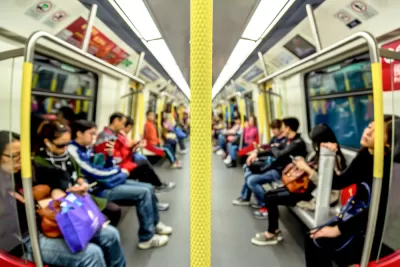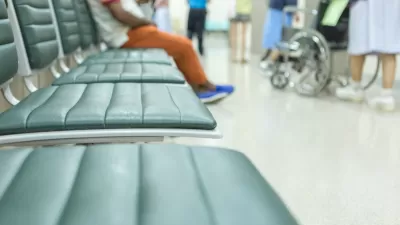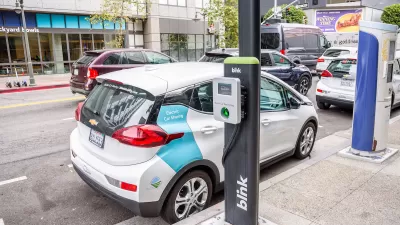Results from a YouGov survey indicate there is interest in subway and train cars being designated as women only, especially among female riders, younger riders, and people who have had negative interactions on public transportation.

YouGov, an international online research group, recently conducted a survey that asked 31,000 Americans if transit agencies in the United States should designate the first car of each subway train for women only like Japan, India, and Brazil do. According to their results, “43% of Americans somewhat or strongly support the trains and subway systems nearest to them reserving a car for women only. In comparison, only 30% of Americans oppose the adoption of this policy, and 27% are not sure.”
The picture becomes more interesting the farther you delve into the data. The following are some highlights (the original article has some excellent charts illustrating the results that are worth checking out):
- Women were more likely than men to support it (48 vs. 38 percent) and less likely to oppose it (22 vs. 37 percent).
- Ridership frequency impacts level of support: of those who support women-only cars: 60 percent of those who ride daily were in favor, as were 55 percent of weekly riders, 52 percent of monthly riders, 44 percent of those who ride a few times a year, and 37 percent of people who never ride transit.
- Opposition to women-only cars is strongest among Americans who say they never ride transit.
- Younger riders are more in favor of the policy, 56 percent of adults under 30 versus 32 percent of adults 65 and older.
- People who have had negative experiences on public transit (35 percent) are more likely to support women-only cars.
YouGov article authors Macel Moran and Taylor Orth conclude, “These results indicate significant interest from Americans in their local transit systems experimenting with women-only cars on trains and subways. Particularly in the context of decreased transit ridership nationwide in the wake of the COVID-19 pandemic, such a policy could potentially encourage transit use among women with previous negative experiences on public transportation.”
FULL STORY: Should U.S. transit systems designate women-only cars?

Study: Maui’s Plan to Convert Vacation Rentals to Long-Term Housing Could Cause Nearly $1 Billion Economic Loss
The plan would reduce visitor accommodation by 25,% resulting in 1,900 jobs lost.

North Texas Transit Leaders Tout Benefits of TOD for Growing Region
At a summit focused on transit-oriented development, policymakers discussed how North Texas’ expanded light rail system can serve as a tool for economic growth.

Why Should We Subsidize Public Transportation?
Many public transit agencies face financial stress due to rising costs, declining fare revenue, and declining subsidies. Transit advocates must provide a strong business case for increasing public transit funding.

How to Make US Trains Faster
Changes to boarding platforms and a switch to electric trains could improve U.S. passenger rail service without the added cost of high-speed rail.

Columbia’s Revitalized ‘Loop’ Is a Hub for Local Entrepreneurs
A focus on small businesses is helping a commercial corridor in Columbia, Missouri thrive.

Invasive Insect Threatens Minnesota’s Ash Forests
The Emerald Ash Borer is a rapidly spreading invasive pest threatening Minnesota’s ash trees, and homeowners are encouraged to plant diverse replacement species, avoid moving ash firewood, and monitor for signs of infestation.
Urban Design for Planners 1: Software Tools
This six-course series explores essential urban design concepts using open source software and equips planners with the tools they need to participate fully in the urban design process.
Planning for Universal Design
Learn the tools for implementing Universal Design in planning regulations.
Ascent Environmental
Borough of Carlisle
Institute for Housing and Urban Development Studies (IHS)
City of Grandview
Harvard GSD Executive Education
Toledo-Lucas County Plan Commissions
Salt Lake City
NYU Wagner Graduate School of Public Service





























